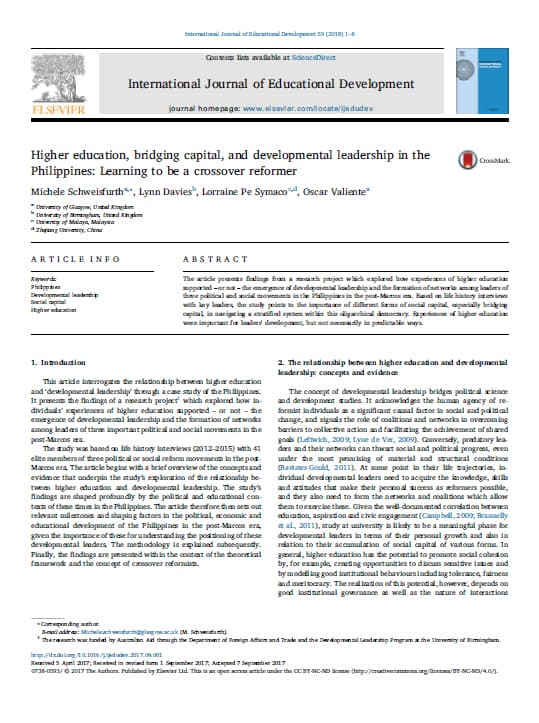The open-access early view article in the International Journal of Educational Development presents findings from a DLP research project. It explores how experiences of higher education supported – or not – the emergence of developmental leadership and the formation of networks among leaders of three political and social movements in the Philippines in the post-Marcos era.
Based on life history interviews with key leaders, the study points to the importance of different forms of social capital, especially bridging capital, in navigating a stratified system within this ‘oligarchical democracy’. Experiences of higher education were important for leaders’ development, but not necessarily in predictable ways. The article notes that:
- Higher education has the potential to facilitate both the personal development and the networking of reform leaders.
- Leaders note that higher education is a necessary but not sufficient condition for promoting developmental leadership.
- The extra-curricular dimensions of higher education and the personal determination of leaders proved as important as the formal curriculum and pedagogical experiences.
The research was supported by the Australian Government through the Department of Foreign Affairs and Trade.









